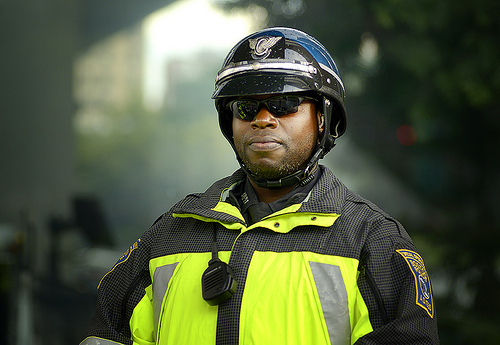 A hotly debated topic in criminal law circles is the limits on police to exercise their authority when they are off duty or outside of the jurisdiction where they are employed as officers. While some citizens are comforted by the idea that a police officer may take action at any time to exercise their authority, others see off duty police exercising their authority outside of their sworn jurisdictions to be an invitation to misconduct and potential peril.
A hotly debated topic in criminal law circles is the limits on police to exercise their authority when they are off duty or outside of the jurisdiction where they are employed as officers. While some citizens are comforted by the idea that a police officer may take action at any time to exercise their authority, others see off duty police exercising their authority outside of their sworn jurisdictions to be an invitation to misconduct and potential peril.
Recently the Supreme Judicial Court ruled on the case of Commonwealth v. Limone. In this case an off duty Somerville police officer had his personal motor vehicle struck in a car accident. At the time of the accident the officer was returning to his home and no longer on duty, however he was still in his uniform. When the accident occurred the officer got out of his motor vehicle and approached the driver of the car that struck him. After a short interaction with the driver the off duty officer formed the opinion that he was under the influence of alcohol.
At that point the officer ordered the driver to get out of his vehicle. The driver complied with the order and the officer reached into the motor vehicle and confiscated his keys. The officer ensured that the driver stayed put at the scene of the accident until the Woburn Police arrived and took over the investigation.
When the Woburn Police arrived they conducted field sobriety tests and placed the driver under arrest. He agreed to take a breathalyzer test and was over the .08 limit with a score of .12. The driver’s lawyer challenged the legality of the off duty officer’s actions prior to the driver’s trial in Superior Court, however those challenges were unsuccessful and the driver was eventually found guilty and sentenced to serve time in a state prison.
In Massachusetts it is a long standing rule of law that an officer may not make arrests outside of his jurisdiction unless one of following three limited exceptions applies:
1) If an officer observes an individual commit an offense in his own jurisdiction he may pursue the offender into a different jurisdiction and effect an arrest
2) If an officer is employed in one jurisdiction, but is sworn in as a special officer in any other jurisdiction he may make arrests in the jurisdictions where he is a special officer. (some small towns that border each other mutually swear in all of the other town’s officers as special officers specifically to take advantage of this exception)
3) An officer from one jurisdiction may make an arrest in a second jurisdiction if that arrest is in response to a request for suitable aid from an a sworn officer in that second jurisdiction.
Clearly none of these exceptions applied to the circumstances in this case. Because none of the exceptions applied a lower appeals court sided with the defense and agreed that the officer could not detain the driver, because the officer was outside of his jurisdictional authority.
However the Supreme Judicial Court reveiwed the lower court’s decision and used this case as an opportunity to expand police authority to act outside of their jurisdiction. Although the off duty officer had ordered the driver not to leave, and confiscated his keys thereby depriving him of any means to leave, the Supreme Judicial Court declined to acknowledge that the driver had effectively been arrested. Rather they decided that the encounter that took place in this case was not an arrest and more akin to a mere traffic stop.
Because the court declined to find the off duty officer’s actions amounted to arrest, they upheld his actions as proper and within the limits of existing law on off duty officer conduct. As a result, the conviction was reinstated and the driver must finish his prison term.
If you or a loved one has had an encounter with the police that resulted in criminal charges contact an aggressive criminal defense lawyer today for a free consultation. Attorney Cappetta is an experienced criminal defense attorney that can help you determine the best way to fight your case, and see it through with zealous committed representation. Contact him for a free consultation today 508-762-4540.
 Massachusetts Criminal Lawyer Blog
Massachusetts Criminal Lawyer Blog

